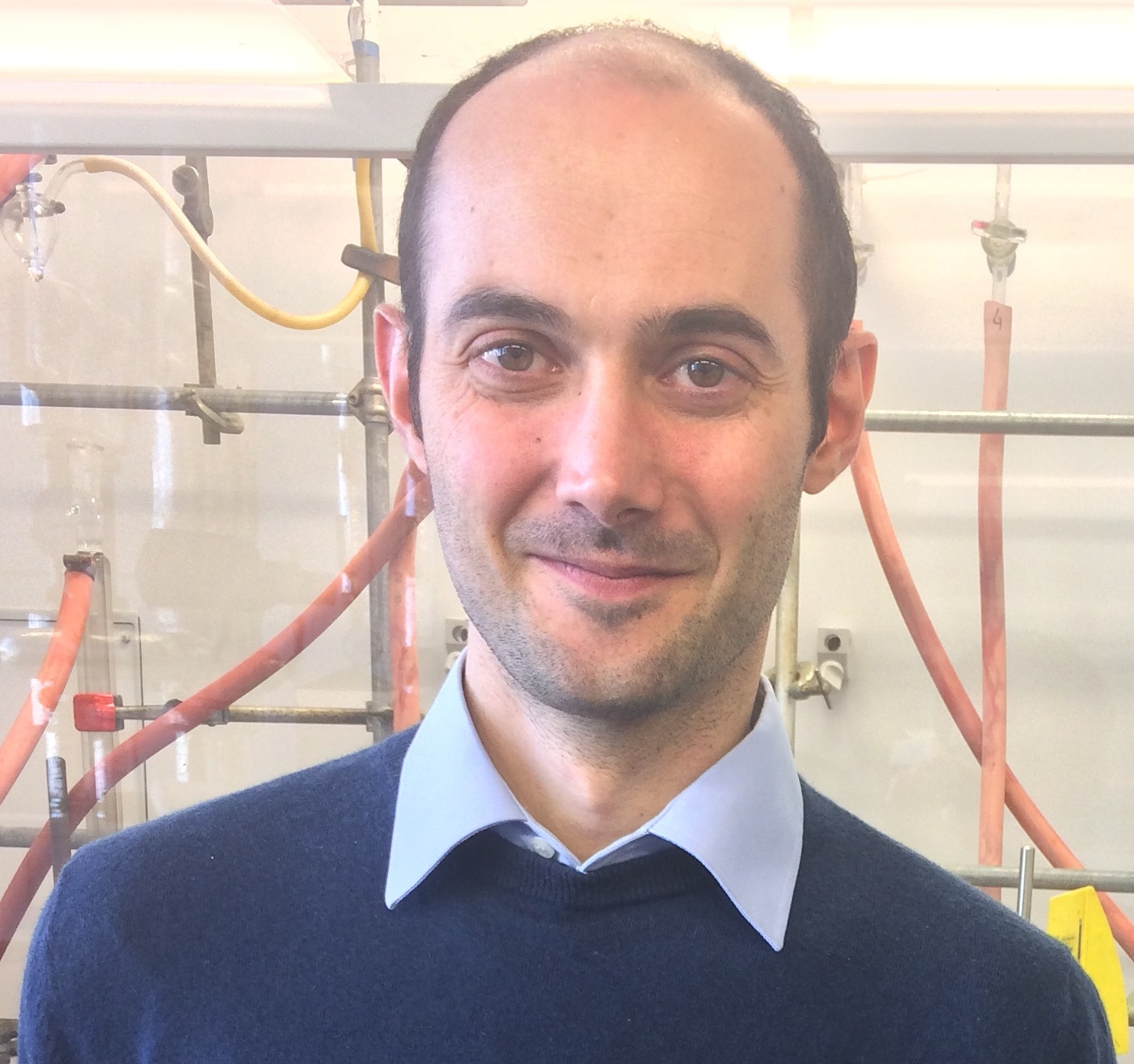 Matthieu Raynal got his PhD degree under the supervision of Dr P. Braunstein in 2009 (Strasbourg). He conducted postdoctoral studies at UPMC with L. Bouteiller (Paris) and in the group of Prof. P. W. N. M. van Leeuwen at ICIQ (Tarragona, Spain). In 2012, he was appointed as a CNRS researcher at Sorbonne Université, Paris. He is fascinated by how non-covalent interactions can be designed to control the outcome of a catalytic reaction, i.e. supramolecular catalysis. His group is currently developing supramolecular helical catalysts with particular efforts devoted to exalt their chirality amplification and switchable properties. His research activities also concern the design of functional chiral assemblies and the structure-property relationship of supramolecular polymers.
Matthieu Raynal got his PhD degree under the supervision of Dr P. Braunstein in 2009 (Strasbourg). He conducted postdoctoral studies at UPMC with L. Bouteiller (Paris) and in the group of Prof. P. W. N. M. van Leeuwen at ICIQ (Tarragona, Spain). In 2012, he was appointed as a CNRS researcher at Sorbonne Université, Paris. He is fascinated by how non-covalent interactions can be designed to control the outcome of a catalytic reaction, i.e. supramolecular catalysis. His group is currently developing supramolecular helical catalysts with particular efforts devoted to exalt their chirality amplification and switchable properties. His research activities also concern the design of functional chiral assemblies and the structure-property relationship of supramolecular polymers.
Read his Emerging Investigator article “Asymmetric hydroamination with far fewer chiral species than copper centers achieved by tuning the structure of supramolecular helical catalysts” and read more about his in the interview below:
How do you feel about Catalysis Science & Technology as a place to publish?
Catalysis Science & Technology is a renowned platform for scientific advances in the various fields of catalysis. I’m very pleased that my first article in Catalysis Science & Technology will be part of the 2021 Emerging Investigator Series. It will undoubtedly broaden the audience of our research topic which stands at the frontier between supramolecular chemistry and homogeneous catalysis
What aspect of your work are you most excited about at the moment and what do you find most challenging about your research?
I’m fascinated by how non-covalent interactions can help to drive catalytic processes in the desired direction. I’m more specifically working with hydrogen-bonded supramolecular polymers, which possess particularly intriguing properties regarding their chiral and dynamic nature. I consider that supramolecular catalysts, notably those operating through hydrogen bonds, are still in their infancy but that important applications for this class of catalysts may emerge in the future.
In your opinion, what are the most important questions to be asked/answered in this field of research?
One important question which is intimately related to the paper we published in the EMI is the emergence of homochirality in non-enantiopure systems. This is a fundamental question with implications in the understanding of the origin of biological homochirality. This can also lead to innovative asymmetric catalytic systems which operate with infinitesimal amounts of chiral species.
Can you share one piece of career-related advice or wisdom with other early career scientists?
I just want to express my support to all young academic researchers and new PIs who have been extremely impacted by the actual sanitary crisis.
Keep up to date with Matthieu and his research by following his Twitter @raynal_cnrs










